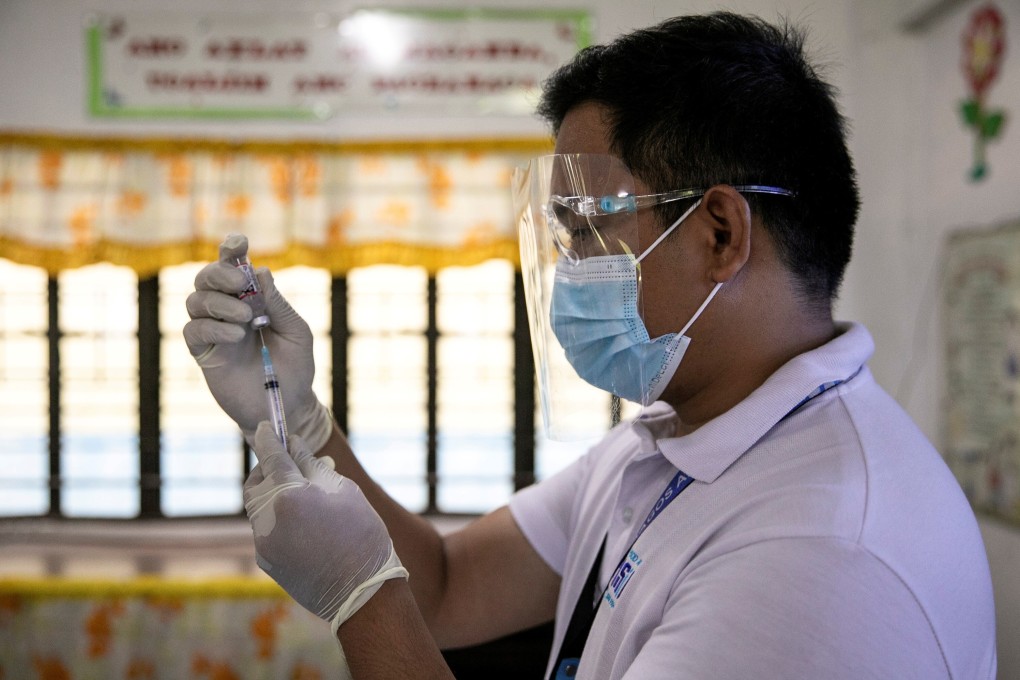Philippines set to roll out Sinovac Covid-19 jabs, but some businesses can’t wait
- Although 600,000 Sinovac doses will be given starting next week, private firms throughout the country have secured their own vaccines
- Hundreds of companies have bought millions of doses of the AstraZeneca vaccine and other jabs, aiming to get their employees rolling again

They were worried about suffering the same fate as the French drug maker Sanofi, which is facing lawsuits in the Philippines after an inoculation campaign involving its dengue drug, Dengvaxia, allegedly resulted in the deaths of several children dating as far back as 2016.
Earlier this week, the Philippine Congress approved a law protecting drug companies that make the Covid-19 vaccines from most lawsuits, opening the way for the AstraZeneca doses. There has been no word on when the Pfizer vaccines might come.
While Manila is expected to provide more details on how it will prioritise its citizens for vaccination, an initial plan showed that health care workers would be the first to get the shots and that those aged 18 and above and employed in non-essential industries would be last on the list.
But with the Philippine Food and Drug Authority (FDA) saying the Sinovac vaccine was not suitable for health care workers – efficacy data found it was 50.6 per cent effective in preventing Covid-19 in a trial involving health care workers in Brazil, but 91 per cent effective in a much smaller trial conducted in Turkey – Roque said the Sinovac doses may instead be given to military personnel and workers in the transport, agriculture, fishing and export-oriented industries.